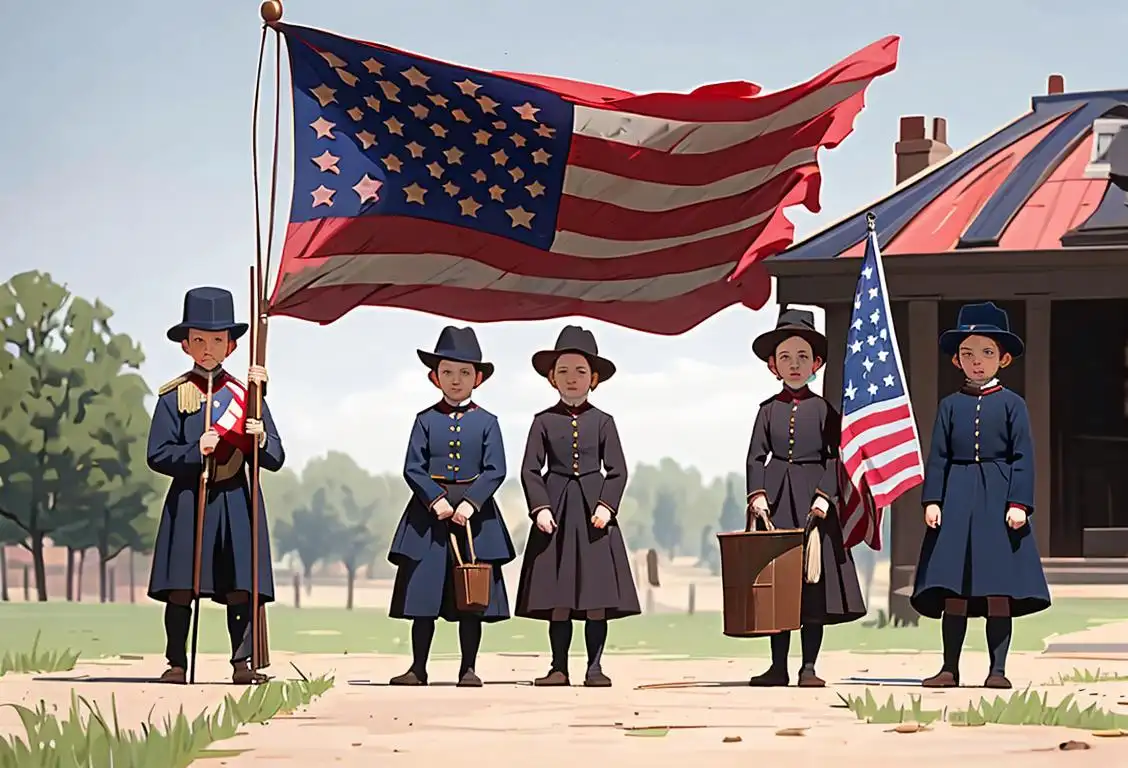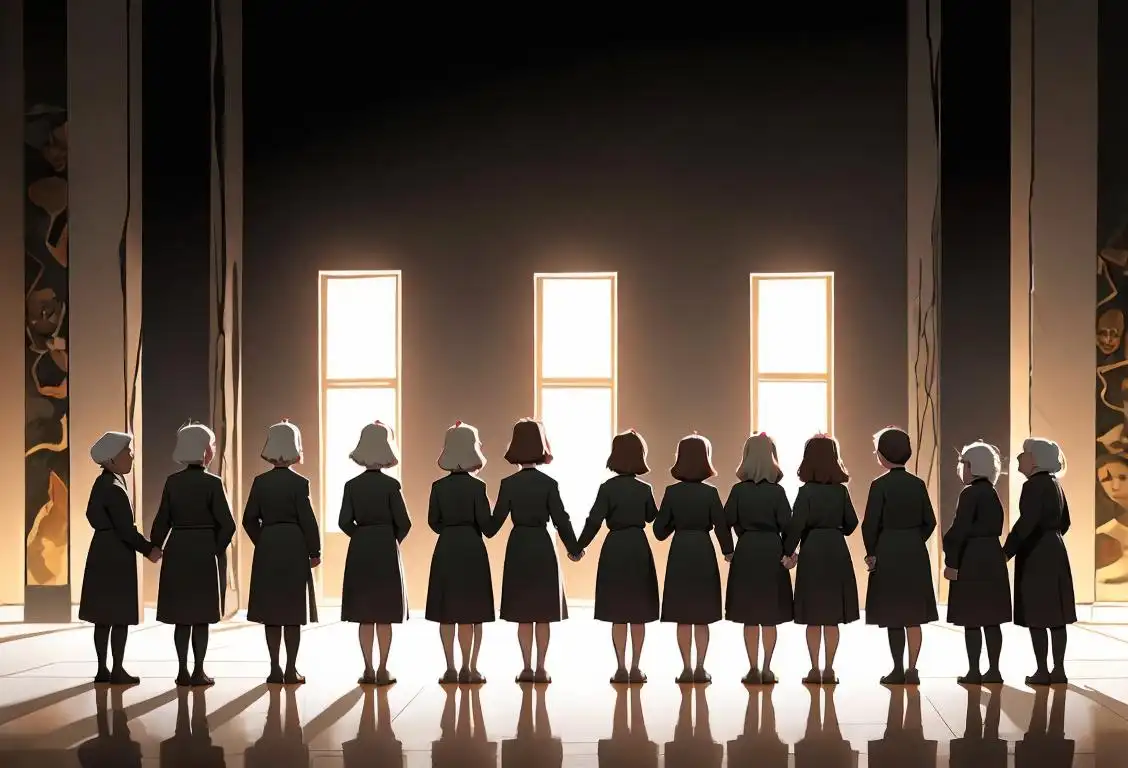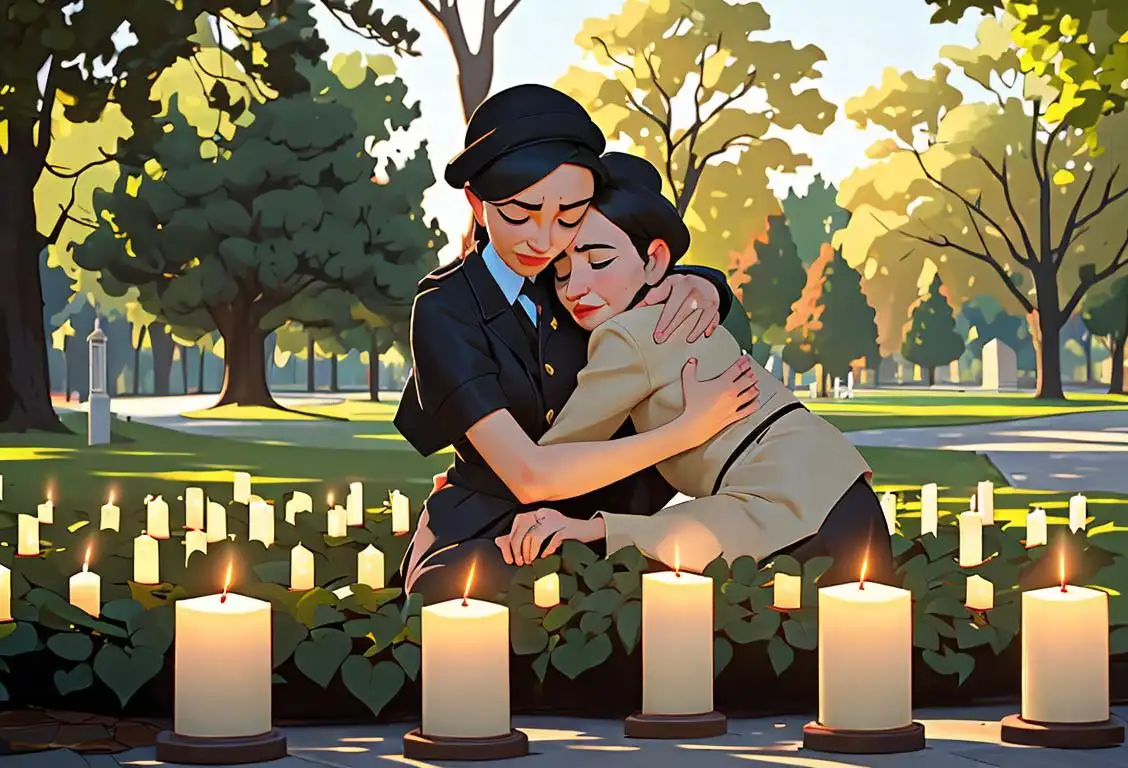National Civil War Day

Hey there, history enthusiasts! Welcome to WhatNationalDayIsIt.com, the hub of all things national day. Today, we're diving deep into National Civil War Day, a day that commemorates a momentous period in history.
When is Civil War Day?
It's national civil war day on the 20th June.
The Internet History of National Civil War Day
Imagine a time when the nation was divided, not by disagreements over pineapple on pizza, but by something far more significant – the Civil War. National Civil War Day pays homage to this pivotal conflict that shaped the course of American history, pitting brother against brother, and blue against gray.
Throughout the web, we've managed to detect 13 mentions of National Civil War Day, with the most buzz generated on June 20, 2020. It seems people are eager to learn, remember, and honor this historical event.
The Importance of Remembering
While the Confederates may have lost the Civil War, it remains an integral part of our shared heritage. National Civil War Day serves as a poignant reminder of the sacrifices made by both sides and the progress that has been achieved since those dark days. It's a time to reflect on the struggles and triumphs of our nation's past, renew our commitment to unity, and strive for a brighter future.
Did You Know?
Fun fact: The Civil War was not only fought on land but also at sea. In fact, the first battle between ironclad warships, the USS Monitor and the CSS Virginia, took place in 1862. These massive hulks clashed in the Battle of Hampton Roads, forever changing naval warfare.
History behind the term 'Civil War'
1642
The Spark
In 1642, tensions between the supporters of King Charles I and those of the English Parliament reached a breaking point. The conflict that ensued would become the catalyst for what would later be known as the English Civil War. Both sides were deeply divided over issues of power and governance, leading to a series of confrontations.
1649
Execution of a King
One of the defining moments of the English Civil War occurred in 1649 when King Charles I was executed by order of the Parliament. This marked a significant turning point, as it demonstrated that no one was above the law and challenged the divine authority of the monarchy. The execution further intensified the conflict and solidified the divide between the royalists and parliamentarians.
1649-1651
Oliver Cromwell's Rule
Following the execution of King Charles I, Oliver Cromwell emerged as a powerful figure in the Parliamentarian faction. He led the New Model Army to several decisive victories against the royalists, ultimately establishing his authority over England, Scotland, and Ireland. Cromwell's rule, known as the Commonwealth, transformed the political and social landscape of Britain during this period.
1651-1658
Interregnum and Protectorate
After the establishment of the Commonwealth, England entered a period known as the Interregnum, during which no monarch ruled the country. Oliver Cromwell assumed the title of Lord Protector and governed as a virtual dictator. Cromwell's foreign policies expanded English influence, but his rule was also marked by religious and political repression. The Interregnum came to an end with Cromwell's death in 1658.
1660
Restoration of the Monarchy
In 1660, the English Civil War officially came to an end with the Restoration of the Monarchy. Charles II, son of the executed King Charles I, was invited to return from exile and assume the throne. This marked a return to a more traditional monarchical system, though the legacy of the civil war continued to shape political discourse and constitutional development in Britain.
Did you know?
The first battle between ironclad warships took place during the Civil War!Tagged
awareness remembrance historyFirst identified
4th July 2018Most mentioned on
20th June 2020Total mentions
13Other days
Parents Day
Slavery Day
Prisoners Of War Remembrance Day
Police Day
Holocaust Day
Holocaust Remembrance Day
Remembrance Day
Camera Day
Former Prisoner Of War Recognition Day
Siren Marking Holocaust Remembrance Day








